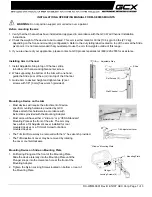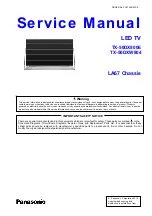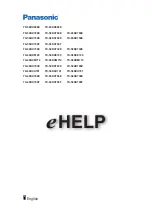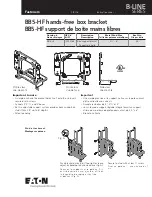
29
Poor color / tint,
good sound
Before calling service personnel, please check the following chart for a
Symptom
Check these things
TV is not
turned on
Spots appear
on the screen
Lines appear
on the screen
Good picture ,
no sound
Be sure the power cord is plugged in.
The MUTE function may be used.
Adjust the volume of the TV set.
The contrast, color and tint may be incorrectly adjusted.
If you change the direction of the TV while the TV is on, the picture
may suffer from color shading. If so, turn off the TV and allow about
30 minutes to cool, then turn on the TV again.
The broadcast signal may be jammed by other electrical sources such
as cars, motorcycles, electric trains, high tension lines, neon signs, hair
dryers.
The broadcast signal may be jammed by other TV receivers, personal
computers, and TV games, as well as interference from radio stations.
Interference may be due to broadcast waves reflected from mountains
or buildings.
Check if the direction of the antenna is changed.
The antenna may be disconnected or falling out.
Check if the direction of the antenna is changed.
The batteries in the remote control may be exhausted.
The batteries may be improperly installed.
Check if there are obstacles between the remote control and the
remote (infrared ray) receiver.
Check if there is strong light interference around the remote (infrared)
receiver.
Check if the main power is ON.
Double images
or ghosts
Snowy picture or
black screen
The following conditions are not troubles
Clacking noise inside
the receiver
It may result from the expansion of the shell caused by a temperature
change. This will not affect the picture and sound quality.
Uneven colour in a
certain portion of the
screen
If the picture is too bright, this may occur according to the nature of
the pictures. Reduce the contrast, it may resume to normal.
Troubleshooting
CAUTION
In case of problems, have your TV serviced by qualified personnel.Never
attempt to service the set yourself since opening the cabinet may expose
you to dangerous voltage or other hazards.
possible cause to the trouble you are experiencing.
8. CIRCUIT DIAGRAM
Summary of Contents for HTR20-A
Page 31: ...30 ...



































